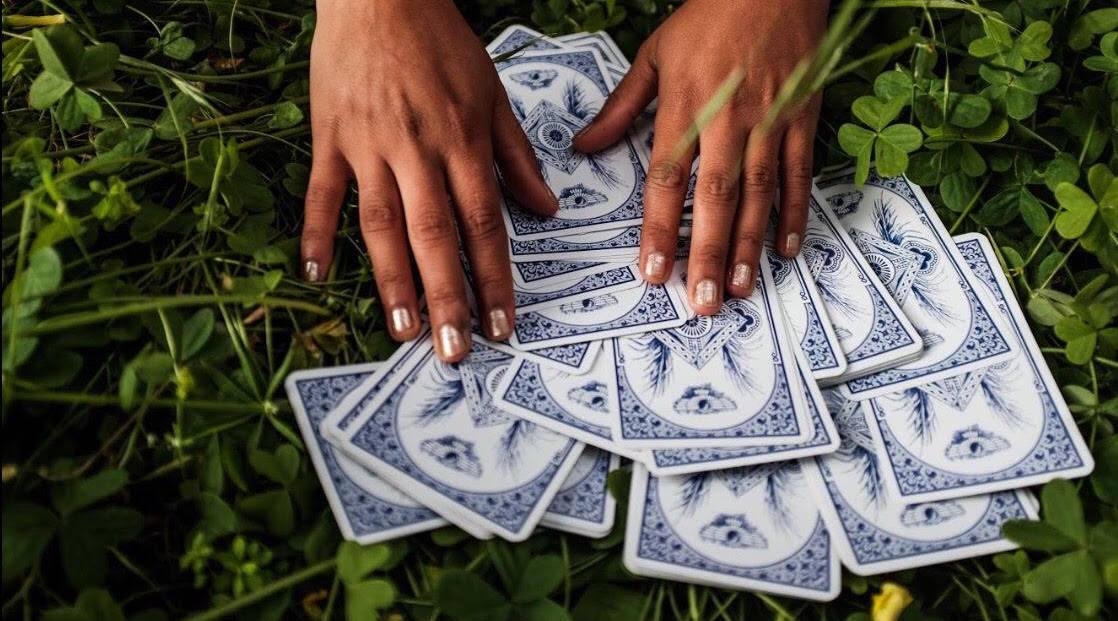O Oracle,
Needle exchanges scare me. Aren’t we just legitimizing drug use? I don’t want more addicts in our community.
Dear frightened friend,
I have consulted the cards in response to your fear. But a small part of me questions that perhaps your fear lies more in shame—shame that our small community that we love so dearly could be wracked by illegal drug use.
We are all addicts. I promise you that we are all addicted to something, whether that be screens or negativity or caffeine. And the one thing I know most about addiction is that it is bred by shame.
What heals the body’s illness of needing something that is terrible for it? Love. A warm embrace. Acceptance. Wholeheartedness heals shame.
I drew the card “one of honey” in response to your question.
one of honey
welcome resurrection of wildflowers in a
declining midwestern city that still buzzes
as the bee who knows he is dying & keeps
searching for a bud in an unseasonable
freezing.
We are not a declining city by any means. The comparison exists here to highlight that our thriving little metropolis is booming, and with the welcome growth in numbers comes new realities we may not have had to face before. Although, since I was young, we’ve known that meth use in particular has been a serious concern in our community.
We can welcome a resurrection. It would be a powerful lesson to ourselves to give those who suffer from addiction the opportunity to rise again. Wouldn’t you want to be given the chance? If you knew you were dying, and the sweet pollen of a wildflower could gift you new life? What might an individual in recovery be able to accomplish in our community if they were given the opportunity to heal and feel a part of something bigger? If you were dying in an “unseasonable freezing,” when it was really the springtime of your life, would you not want someone to come to you with a warming fire?
And the ritual:
rituals & rites
at the black moon, adorn yourself with a lace gown
made of fishing wire & fantasy, embroidered with fire
agates & fear. place upon your face a mask of sorrow
& open-eyed sentiment. you are sent by the dream world
to defend itself against the slaughter of the seasons,
genocide of an entire ecosystem breathing as one.
keep a snowy owl on a leash & allow a narwhal to carry you
to where people become less substantial & ghosts are allowed
to drink of our poisonous fragrance & powerful self-sabotage.
What scares you about drug use? Is it your own insecurity that you, too, could be harmed by the manifestations of forbidden substances? I encourage you to be a defender against the slaughter of your own people. To embody the realities that we are all interconnected—one giant, living, breathing organism. You are behaving as a cell in the body of the earth who decides she is separate from all of those who are made of the same stuff as her.
The ghosts that haunt us want to drink of the ways that we sabotage ourselves. Not allowing those suffering from addiction to heal doesn’t mean that the problem goes away. No. It gets pushed into the shadows. It becomes more powerful the more we try to ignore it, the more we treat it as a problem.
Lastly, on the topic of ghosts, I suggest you check out the book In the Realm of Hungry Ghosts: Close Encounters with Addiction by Dr. Gabor Maté. “In itself, harm reduction is valuable regardless of whether it leads to abstinence,” says Gabor Maté, about his experience working at Insite, a supervised injection center. “Had [my patients] not had contact with Insite and the experience of acceptance and nonjudgment, they would not have ended up in detox,” Maté says. The book’s description alone underscores the message of compassion and acceptance as the first step to healing what is a societal problem:
Based on Gabor Maté’s two decades of experience as a medical doctor and his groundbreaking work with the severely addicted on Vancouver’s skid row, In the Realm of Hungry Ghosts radically re-envisions this much misunderstood field by taking a holistic approach. Dr. Maté presents addiction not as a discrete phenomenon confined to an unfortunate or weak-willed few, but as a continuum that runs throughout (and perhaps underpins) our society; not a medical "condition" distinct from the lives it affects, rather the result of a complex interplay among personal history, emotional, and neurological development, brain chemistry, and the drugs (and behaviors) of addiction. Simplifying a wide array of brain and addiction research findings from around the globe, the book avoids glib self-help remedies, instead promoting a thorough and compassionate self-understanding as the first key to healing and wellness.


